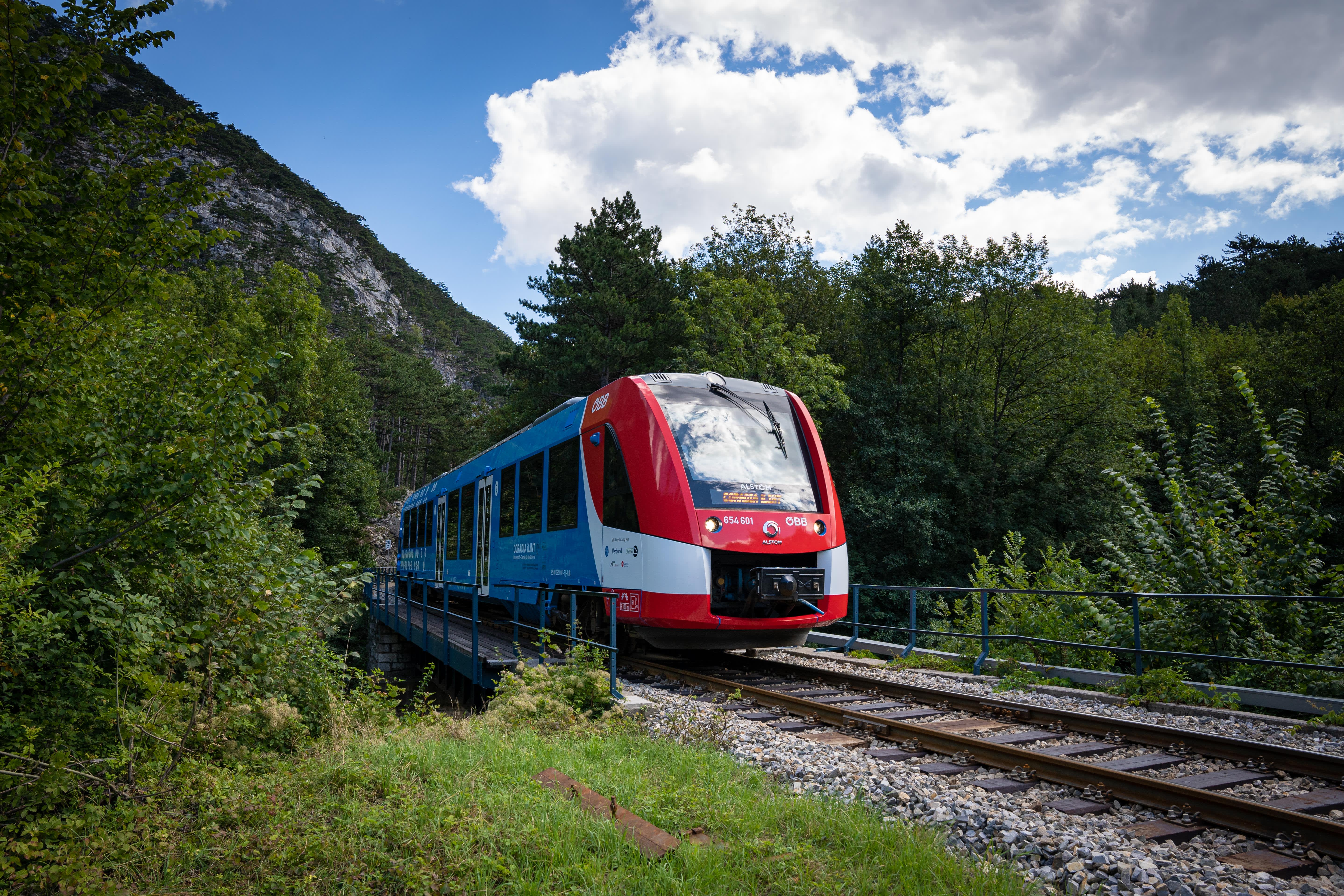ÖBB | Max Wegscheider
Rail passengers in Austria are set to take part in a trial of a hydrogen fuel cell train, as the rollout of technology that could change the way public transport systems operate continues at a steady pace.
In a statement at the end of last week, ÖBB, the Austrian Federal Railways, said the train would enter passenger service in southern areas of Lower Austria, with the “test phase” due to continue “until at least the end of November 2020.” The train is slated to start carrying passengers this week and its deployment will be used to evaluate, among other things, how it operates on challenging alpine routes.
Built by European transport firm Alstom, the Coradia iLint harnesses fuel cell technology to turn oxygen and hydrogen into electricity. According to the company, it can reach speeds of up to 140 kilometers per hour, is low-noise and “emits only steam and water.”
The Coradia iLint has already carried passengers in parts of Germany and underwent ten days of testing on a 65 kilometer stretch of railway in the Netherlands earlier this year.
In a statement issued during a launch event in the Austrian capital of Vienna last week, Alstom’s CEO for Germany and Austria, Jörg Nikutta, said the “train’s emission-free drive technology” offered “a climate-friendly alternative to conventional diesel trains, especially on non-electrified lines.”
Indeed, while some trains are powered using electricity, others still rely on diesel to carry out their journeys, a less than ideal situation when governments around the world are looking to boost air quality and reduce their reliance on fossil fuels.
The Coradia iLint is part of a small but growing selection of hydrogen-powered transportation methods. The U.K. capital of London is home to a small number of hydrogen buses, for example, while major car firms Toyota and Honda have both dipped into the hydrogen fuel cell market.
Hydrogen fuel cell technology is not restricted to mobility solutions. This month, it was announced that a building site for a major infrastructure project in the U.K. had started to use a zero-emission hydrogen fuel cell for heat and power, removing the need for diesel generators. Elsewhere, JCB, a major producer of construction equipment, says it has developed an excavator that is powered by hydrogen.
In recent years, a number of major companies have launched plans focused on hydrogen production. Just last week, French firm Engie said it would collaborate with ArianeGroup on the development of “renewable liquid hydrogen.”
Also this summer, Spanish oil and gas producer Repsol announced plans to develop a facility that will use carbon dioxide and green hydrogen to generate net-zero emission fuels. And Norwegian energy major Equinor recently released details of a major U.K.-based project that will look to combine hydrogen generation with carbon capture and storage.
